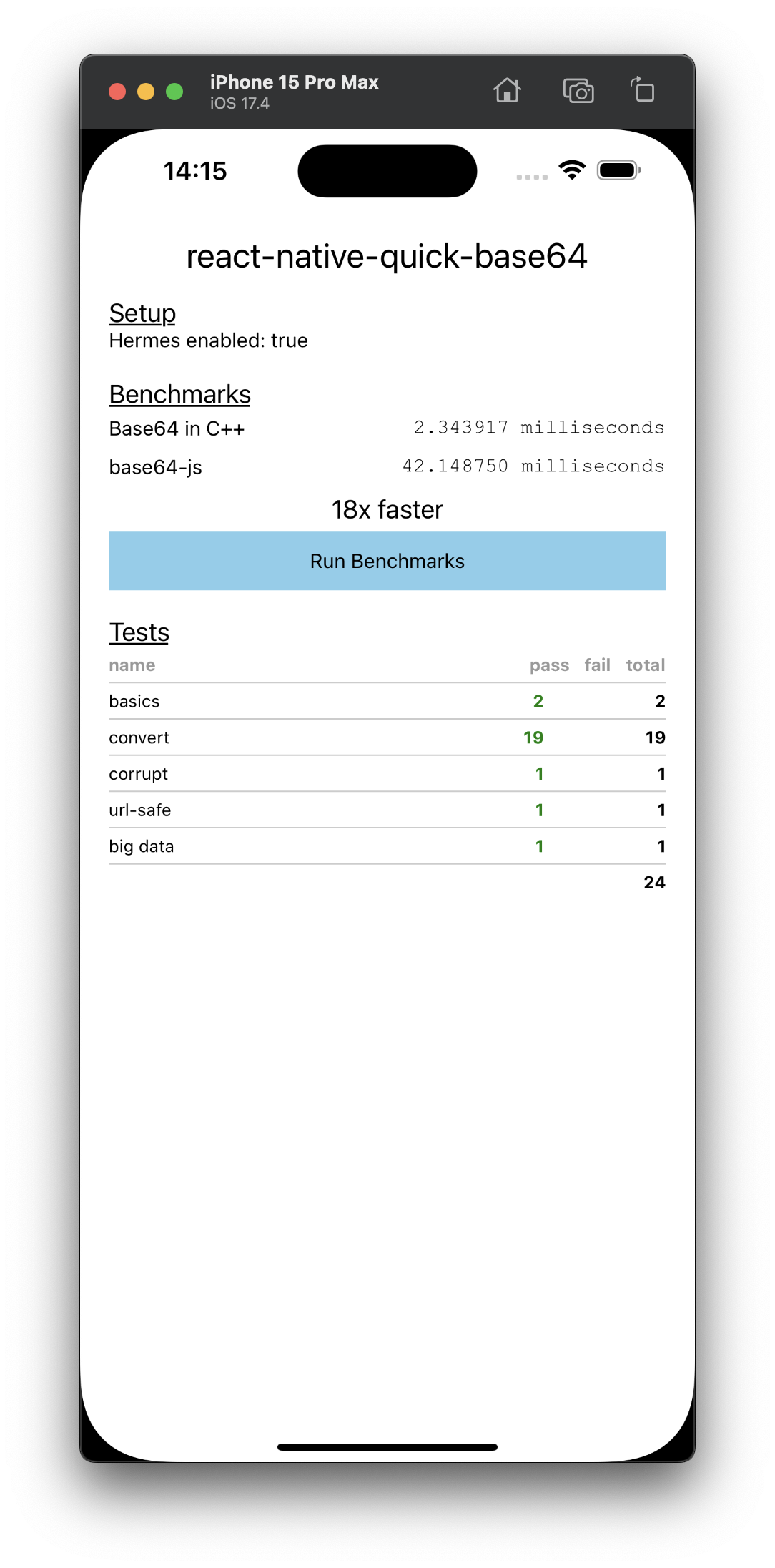react-native-quick-base64
A blazing fast, native Base64 implementation for React Native using C++ and JSI.
This library is ~16x faster than base64-js on an iPhone 15 Pro Max simulator. Try the benchmarks in the example app.
| iPhone | Android |
|---|---|
 |
Features
- ⚡ Native C++/JSI implementation for maximum performance
- 🧠 Automatically installs its JSI bindings at runtime
- 🧩 Drop-in replacement for
base64-jswith matching API - 🔒 No additional native setup or linking required
ℹ️ Heads-up: Starting with recent versions of Hermes,
btoaandatobare natively available in the JS runtime. You likely don't need to use the versions provided by this library anymore unless you're running on an older engine or want consistent behavior across platforms. These methods will remain in the package for compatibility but are considered deprecated.
Installation
npm install react-native-quick-base64This module installs its native bindings automatically. Simply importing the library is enough to activate the native backend. Add it to your root entry point file or your first _layout.tsx.
import 'react-native-quick-base64' // triggers native JSI install to global namespaceYou can also import individual helpers:
import { fromByteArray, toByteArray } from 'react-native-quick-base64'Usage
import { btoa, atob } from 'react-native-quick-base64'
const base64 = btoa('foo')
const decoded = atob(base64)API
Compatible with base64-js.
byteLength(b64: string): number
Returns the length of the byte array that corresponds to the base64 string.
toByteArray(b64: string, removeLinebreaks: boolean = false): Uint8Array
Converts a base64 string into a Uint8Array.
If removeLinebreaks is true, all \n characters are removed first.
fromByteArray(uint8: Uint8Array, urlSafe: boolean = false): string
Converts a byte array into a base64 string.
If urlSafe is true, the output uses a URL-safe base64 charset.
btoa(data: string): string ⚠️ Deprecated
Encodes a string into base64 format.
Avoid using this unless you're on an older JS engine. Use
fromByteArray(new TextEncoder().encode(...))instead for better encoding control.
atob(b64: string): string ⚠️ Deprecated
Decodes a base64 string into a UTF-8 string.
Avoid using this unless you're on an older JS engine. Use
TextDecoder + toByteArray()for more robust decoding.
shim()
Adds global btoa and atob functions
import { shim } from 'react-native-quick-base64'
shim()
btoa('foo') // available globallytrimBase64Padding(str: string): string
Removes trailing = or . padding from base64 or base64url-encoded strings.
Contributing
See the contributing guide to learn how to contribute to the repository and the development workflow.
License
MIT © Takuya Matsuyama